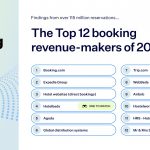Sometimes during an interview, you get either, very predictable, or occasionally weird questions, so do you ever wonder, why do they ask me that?
The interview process can be stressful and unnerving, but if you are well prepared your chances of a successful interview and positive outcome can be substantially increased.
In most interviews, the questions will generally be divided into several categories: –
Warm up questions – designed to get you talking and put you at ease.
Competency questions – which assess your technical suitability; can you do the job?
Scenario questions – hypothetical questions designed to understand how you would react in real world situations.
If you understand the likely questions you will be asked, you can prepare your answers in advance, as up to eighty percent of questions asked in an interview are unimaginative and predictable, allowing you to easily rehearse the answers.
Here are some commonly used interview questions – they will give you some idea of potential questions and the response that this question is trying to elicit.
What do you know about our company?
A typical job interview question asked to find out how much company research you have conducted is “What do you know about this company?”
Prepare in advance and in a word – research! This will enable you to provide relevant and current information about your prospective employer to the interviewer. Start by researching the company online; review the “About Us” section of the company web site; Google the company; read blogs that mention it; check discussion boards and social networking sites.
Use the information you have gathered to create a bulleted list of relevant information that you can easily remember during the interview. Taking the time to research will help you make a good impression with how much you know about the company.
Tell me about yourself?
This is not an invitation to ramble on and is often used as a ‘warm up’ question. If the context isn’t clear, you need to know more about the question before giving an answer. In such a situation you could ask, “Is there a particular aspect of my background that you would like more information about?” This will enable the interviewer to help you find the appropriate focus and avoid discussing irrelevancies.
Whichever direction your answer ultimately takes, be sure that it has some relevance to the world of your professional endeavours. The tale you tell should demonstrate one or more of your key behavioural profiles in action – perhaps honesty, integrity, being a team player or determination. For example, if you choose “team player” (maybe you’re the star player on your team tennis group) you can tell a story about yourself outside of work that also speaks volumes about you at work. In part your answer should make the connection between the two such as “I put my heart into everything I do, whether it be sports or work. I find that getting along with teammates or professional peers makes life more enjoyable and productive.”
Or you might describe yourself as someone who is able to communicate with a variety of people, so give an example from your personal life that indicates an ability to communicate also at work.
This isn’t a question that you can answer effectively off the cuff. Take some time in advance to think about yourself and those aspects of your personality and/or background that you’d like to promote or feature for your interviewer.
Why Do You Want to Work for Us?
It’s rare for an interview not to include this question. The good news is that it’s an easy one to prepare for…
Most companies want to recruit people who are enthusiastic about the company and its products. They don’t want people on the team who “ended up there by accident”. This is your chance to show why working for the company is important to you and why you think you will fit in. They will be looking for evidence that you can make a contribution and will be able to grow into the role they are recruiting.
This question is designed to screen out candidates who aren’t serious about the company or may be using it as a stop-gap while they look for something better. It’s also your chance to make the most of the company research you have done. You can use this opportunity to add comments that show you understand the company’s position in the marketplace, the role of its competitors and any challenges it may be facing.
What would your current manager say are your strengths?
We often find it hard to tell people what we’re good at. Selling yourself, without appearing arrogant, is one of the most common interview worries. Many people simply don’t sell themselves for fear of seeming big-headed.
Do you know what your strengths are? You’d be surprised how few do. One place to start is your recent performance appraisals. What did they highlight as your strengths? Can you supply evidence (provide examples)? Can you relate the strengths to the position you’re being interviewed for?
Still stuck for answers to this question? You could try asking someone. Ask a trusted friend or work colleague. Make sure they give you examples of where you have demonstrated the strengths so you can quickly use these if asked.
It’s also worth revisiting the job information to look for the competencies they are seeking. You will make a more favourable impression if you can cover some of these in your answer.
What would your current manager say are your weaknesses?
This is not the place to admit your biggest flaws. It’s also not the time to pretend you don’t have any development areas – it would make you look either conceited or as though you can’t evaluate your own performance. So how should you handle this type of question?
The main thing is to admit that you have areas to develop, whilst showing that you are already working on them and giving examples of the progress you have made. If possible, choose a development area that doesn’t affect your ability to do the job for which you are being interviewed.
It’s usually a good idea to make the “weakness” something small. Avoid topics such as “organisational skills” or “time management”. Be ready to turn it into a positive. What happens if one of your development areas is one of the key strengths required for the role? Make sure you can demonstrate why it won’t be a problem.
As always, take the time to do your research – there is a mountain of information on the internet to help you.
If you are a candidate seeking some further assistance with interview questions or are a Hospitality Manager or HR leader looking for some ideas to plan your next interview, contact us for a copy of our guide – ‘50 Common Interview Questions – their meaning and Ideal answers’.






























